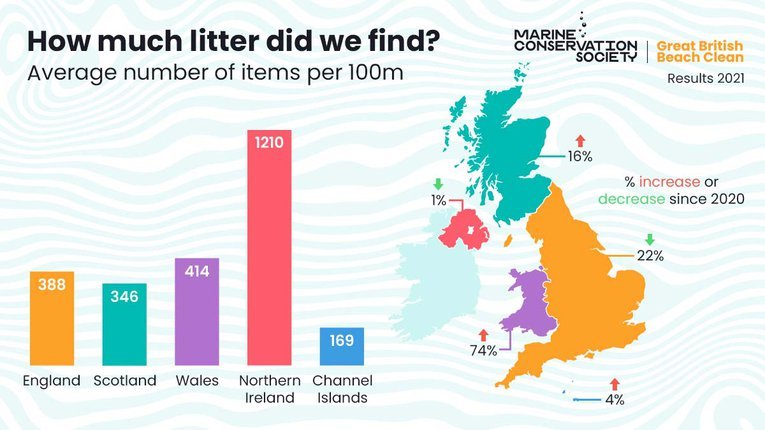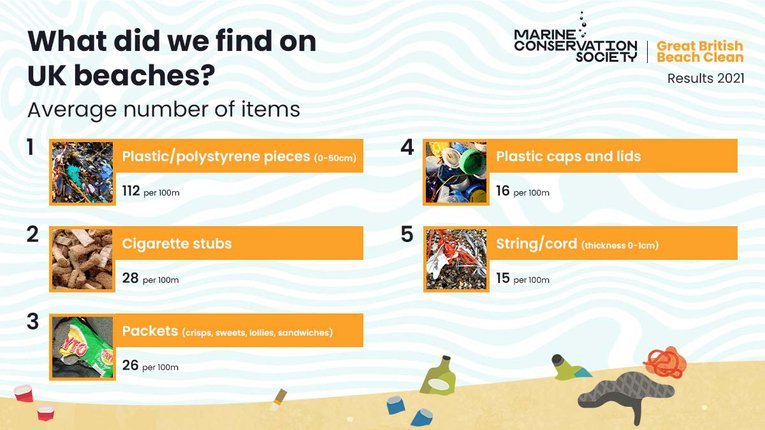It was fantastic to see so many people from across the UK get involved in this year’s Great British Beach Clean, organised by the Marine Conservation Society.
Volunteers young and old took part in a quest to clear their local beaches, streets and parks of litter and record their findings, including at several locations across the Coast & Heaths AONB.
What did the results show?
During the third week of September this year, 6,176 volunteers took part in our Great British Beach Clean. A total of 5064.8kg of litter was collected and recorded over the week by dedicated volunteers and the results are in.
- In positive news, the average litter recorded per 100 metres is dropping year on year across the UK. An average of 385 items were found, compared to averages of 425 in 2020, and 558 in 2019.
- Cotton bud sticks moved out of the UK’s top ten most common rubbish items. An average of six plastic cotton bud sticks were found – the lowest in the Great British Beach Clean’s 28-year history – down from 15 in 2020.
- Numbers of single-use plastic bags on beaches have continued to drop, from a high of 13 on average in 2013, to just three in 2021.
- 75% of all litter collected was plastic or polystyrene. An average of 112 pieces were found for every 100 metres of UK beach surveyed.
- The number of cigarette butts found in Wales more than doubled from 2020 to 2021, with this year’s average an all-time high for Welsh beaches.
- Wet wipes were the second most common form of litter in Scotland, many of which contain plastic and make their way to the coast through the sewer system.
Find out more about the Marine Conservation Society and the Great British Beach Clean.



